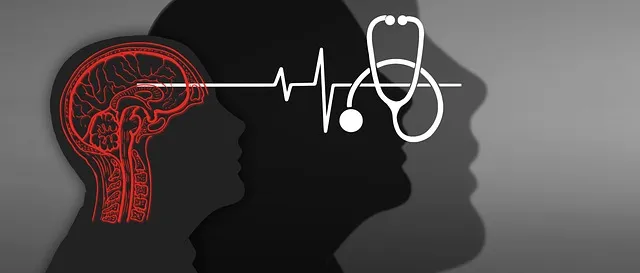Mood regulation, crucial for emotional well-being and overall health, involves managing thoughts, feelings, and behaviors through mindfulness, self-reflection, healthy coping mechanisms, and evidence-based techniques. Lakewood Kaiser Permanente behavioral health services offers a holistic approach, combining traditional therapy with innovative techniques to address stress, anxiety, depression, and other mood challenges. Their programs empower individuals using cognitive techniques for negative thought reframe, mindfulness practices, lifestyle changes like exercise and balanced diets, and communication strategies for healthier relationships, ultimately enhancing emotional resilience and mental well-being.
Mood regulation is a vital aspect of our emotional well-being, enabling us to navigate life’s challenges with resilience. This article explores various strategies to achieve and maintain a balanced state of mind. We delve into the intricate process of understanding mood regulation, highlighting the role of organizations like Lakewood Kaiser Permanente Behavioral Health Services in offering comprehensive solutions. From cognitive techniques to lifestyle changes, discover practical methods for effective mood management and enhanced overall well-being.
- Understanding Mood Regulation: Unraveling Emotional Balance
- Lakewood Kaiser Permanente Behavioral Health Services: A Comprehensive Approach
- Cognitive Techniques for Effective Mood Management
- Lifestyle Changes and Complementary Practices for Enhanced Well-being
Understanding Mood Regulation: Unraveling Emotional Balance

Understanding Mood Regulation is a pivotal aspect of emotional well-being and overall health, especially in managing challenges like those that may be addressed by Lakewood Kaiser Permanente behavioral health services. Emotional balance involves a delicate interplay between our thoughts, feelings, and behaviors, and maintaining this equilibrium can significantly impact mental resilience and quality of life.
At the core of mood regulation lies the ability to recognize and manage one’s emotions effectively. This involves developing strategies that foster emotional awareness, such as mindfulness practices and self-reflection. Additionally, professionals like those involved in Risk Management Planning for Mental Health Professionals often emphasize the importance of healthy coping mechanisms, including engaging in meaningful activities, practicing good self-care, and utilizing evidence-based techniques like Conflict Resolution Techniques to navigate difficult emotions or interpersonal situations. By promoting Self-Esteem Improvement through these means, individuals can enhance their emotional resilience and better regulate moods over time.
Lakewood Kaiser Permanente Behavioral Health Services: A Comprehensive Approach

Lakewood Kaiser Permanente Behavioral Health Services offers a comprehensive approach to mood regulation, prioritizing holistic mental wellness. Their dedicated team provides personalized support through various evidence-based practices, encompassing both traditional therapy and innovative techniques. The services cater to individuals seeking to manage stress, anxiety, depression, and other mood-related challenges, ensuring a nurturing environment for emotional well-being.
One of their unique offerings is the integration of Mental Wellness Journaling, encouraging self-reflection and emotional awareness. Additionally, they facilitate Exercise Guidance, promoting physical activity as a complementary therapy to traditional interventions. Moreover, Lakewood Kaiser Permanente emphasizes professional development with essential Risk Assessment tools and Crisis Intervention training for mental health professionals, fostering a competent and supportive care system.
Cognitive Techniques for Effective Mood Management

Cognitive Techniques for Effective Mood Management play a pivotal role in Emotional Intelligence development, especially when coupled with resilience building practices. Offered by Lakewood Kaiser Permanente behavioral health services, these strategies empower individuals to navigate their thoughts and feelings more effectively. By identifying and challenging negative thought patterns, one can transform their emotional responses, leading to improved mental health awareness and overall well-being.
For instance, cognitive reframing helps shift perspectives on stressful situations, transforming perceived threats into opportunities for growth. Similarly, mindfulness practices cultivate the ability to stay present, observing thoughts and emotions without judgment, which is crucial for managing impulsive reactions. Integrating these cognitive techniques into daily routines fosters resilience, enabling individuals to cope more effectively with life’s challenges.
Lifestyle Changes and Complementary Practices for Enhanced Well-being

Making lifestyle changes and incorporating complementary practices is a powerful way to enhance overall well-being. At Lakewood Kaiser Permanente behavioral health services, we emphasize the importance of a holistic approach to mental health. This includes adopting healthy habits such as regular exercise, a balanced diet, and sufficient sleep, which can significantly impact mood regulation. Engaging in activities like meditation, yoga, or deep breathing exercises can reduce stress levels and promote emotional balance.
Additionally, communication strategies and conflict resolution techniques learned through Mental Health Education Programs Design can foster healthier relationships and provide individuals with effective tools to manage their emotions. By combining these behavioral interventions with professional support, one can achieve a more stable and positive mindset.
Mood regulation is a multifaceted journey, and integrating strategies from various sectors can significantly enhance emotional well-being. As seen with the comprehensive approach offered by Lakewood Kaiser Permanente Behavioral Health Services, combining cognitive techniques, lifestyle changes, and complementary practices creates a robust framework for managing moods effectively. By understanding emotional balance and employing these proven methods, individuals can navigate their emotional landscapes with greater resilience and overall improved mental health.






